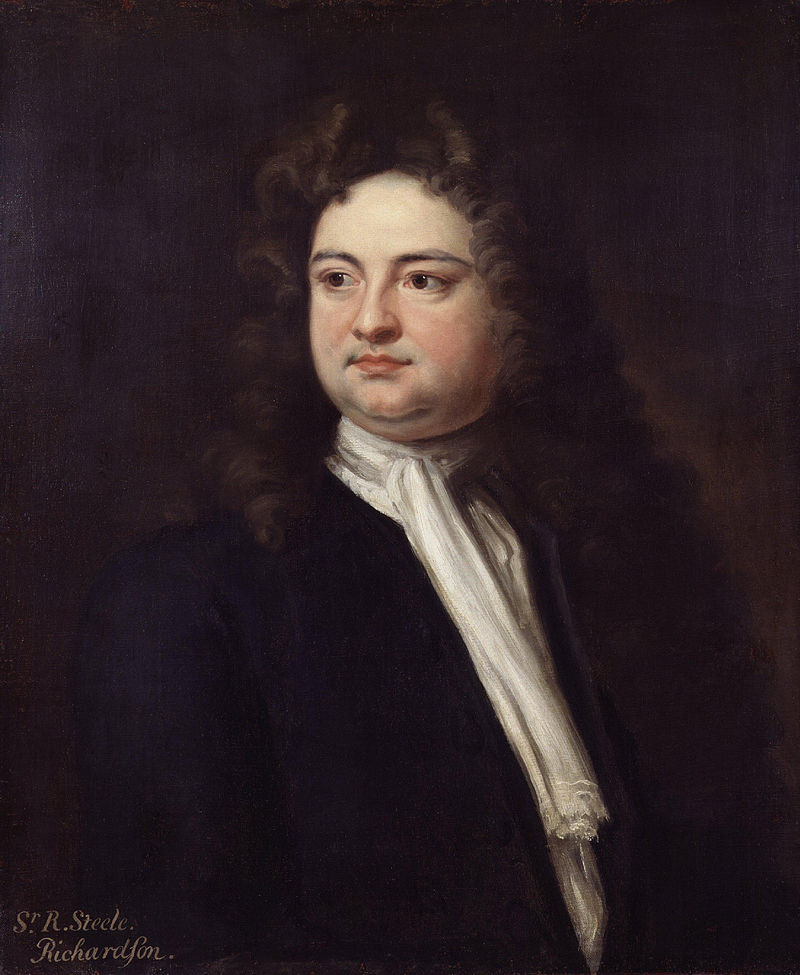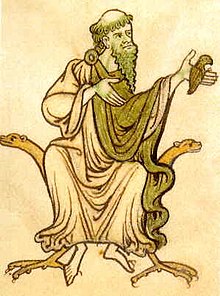
Richard Steele
Cruelty to Animals Censured
Tatler No. 134
「1709-Feb-16」 Richard Steele, “Cruelty to Animals Censured,” Tatler「Google Books」 No. 134 (1709 Feb 16); (London, 1774) 85-88.
I would not have it thought, that there is just ground for those consequences which our enemies draw against us from these practices; but methinks one would be sorry or any manner of occasion for such misrepresentations of us. The virtues of tenderness, compassion, and humanity, are those by which men are distinguished from brutes, as much has by reason itself; and it would be the greatest reproach to a nation, to distinguish itself from all others, by any defect in these particular virtues. For which reasons, I hope that my dear countrymen will no longer expose themselves by an effusion of blood, whether it be of theatrical Heroes, Cocks, or any other innocent animals, which were are not obliged to slaughter for our safety, convenience, or nourishment. When any of those ends are not served in the destruction of a living creature, I cannot but pronounce it a great piece of cruelty, if not a kind of murder.
—Quis talia fando
Myrmidonum, Doopumve, aut duri miles Ulyssei,
Temperet â lacrymis? VIRG. Æn. 2. ver. 8.
—Such woes
Not eve the hardest of our foes could hear,
Nor stern Ulysses tell without a tear. DRYDEN.
Sheer-lane, February 16
I was awakened very early this morning by the distant crowing of a Cock, which I thought had the finest pipe I ever heard. He seemed to me to strain his voice more than ordinary, s if he designed to make himself heard to the remotest corner of this lane. Having entertained myself a little before I went to bed with a discourse on the transmigration of men into other animals, I could not but fancy, that this was the Soul of some drowsy Bell-man who used to sleep upon his post, for which he was condemned to do penance in feathers, and distinguish the several watcher of the night under the outside of a Cock. While I was thinking of the condition of this poor Bell-man in masquerade, I heard a great knocking at my door, and was soon after told by my maid, that my worthy friend the tall black Gentleman, who frequents the Coffee-houses hereabouts, desire to speak with me. The ancient Pythagorean, who has as much honesty as any man living, but a good nature to an excess, brought me the following petition; which I am apt to believe he penned himself, the petitioner not being able to express his mind in paper under his present form, however famous he might have been for writing verses when he was in his original shape.
To Isaac Bickerstaff, Esquire, Censor of Great-Britain.
The humble petition of Job Chanticleer, in behalf of himself, and many other poor sufferers in the same condition,
Sheweth,
That whereas your petitioner is truly descended of the ancient family of the Chanticleers, at Cock-ball near Rumford in Essex, it has been his misfortune to come into the mercenary hands of a certain ill-disposed person, commonly called an Higler, who, under the close confinement of a pannier, has conveyed him and many other up to London; but hearing by chance of your Worships’s great humanity towards Robin-red-breasts and Tom-tits, he is emboldened to beseech you to take his deplorable condition into your tender consideration, who otherwise must suffer, with many thousands more as innocent as himself, that inhuman barbarity of a Shrove-Tuesday persecution. We humbly hope, that our courage and vigilance may plead for us on this occasion.
Your poor petitioner most earnestly implores your immediate protection from the insolence of the rabble, the batteries of catsticks, and a painful lingering death.
And your Petitioner, &c.
From my Coup in Clare-market,
February 13, 1709
Upon delivery of this petition, the worthy Gentleman, who presented it, told me the customs of many wise nations of the East, through which he travelled, that nothing was more frequent than to see a Dervise lay out a whole years’s income in the redemption of larks or linnets, that had unhappily fallen into the hands of bird-catchers. That it was also usual to run between a dog and a bull to keep them from hurting one another, or to lose the use of a limb in parting a couple of furious mastiffs. HE then insisted upon the ingratitude and ingenuity of treating in this manner a necessary and domestic animal, that has made the whole house keep good hours, and called up the cook-maid for five years together: What would a turk say, continue he , should he hear, that it is a common entertainment in a nation, which pretends; to be one of the most civilized of Europe, to tie an innocent animal to a stake, and put him to an ignominious death, who had perhaps been the guardian and proveditor of a poor family, as long as he was able to get eggs for his mistress?
I thought what this Gentleman said was very reasonable; and have often wondered, that we do not lay aside a custom, which makes us appear barbarous to nations much more rude and unpolished than ourselves. Some French writers have represented this diversion of the common people much to our disadvantage, and imputed it to natural fierceness and cruelty of temper; as they do some other entertainments peculiar to our nation: I meant those elegant diversions of bull-baiting and prize-fighting, which the like ingenious recreations of the Bear-garden. I wish I knew how to answer this reproach which is cast upon us, and excuse the death of so many innocent cocks, bulls, dogs, and bears, as have been set together by the ears, or died untimely deaths, only to make us sport.
It will be said, that these are the entertainments of the common people. It is true, but they are the entertainments of no other common people. Besides, I am afraid there is a tincture of the same savage spirit in the diversions of those of higher rank, and more refined relish. Rapin observes, that the English theatre very much delights in bloodshed, which he likewise represents as an indication of our tempers. I must own, there is something very horrid in the public execution of English Tragedy. Stabbing and poisoning, which are performed behind the scenes in other nations, must be done openly among us, to gratify the audience.
When poor Sanford was upon the stage, I have seen him groaning upon a wheel, stuck with daggers, impaled alive, calling his executioners, with a dying voice, cruel dogs and villains ! and all this to please his judicious spectators, who were wonderfully delighted with seeing a man in torment so well acted. The truth of it is, the politeness of our English Stage, in regard to Decorum, is very extraordinary. We act murders, to shew our intrepidity, and adulteries to shew our gallantry: Both of them are frequent in our most taking Plays, with this difference only, that the former are done in the sight of the audience, and the latter wrought up to such an height upon the Stage, that they are almost put in execution before the Actors can get behind the scenes.
I would not have it thought, that there is just ground for those consequences which our enemies draw against us from these practices; but methinks one would be sorry or any manner of occasion for such misrepresentations of us. The virtues of tenderness, compassion, and humanity, are those by which men are distinguished from brutes, as much has by reason itself; and it would be the greatest reproach to a nation, to distinguish itself from all others, by any defect in these particular virtues. For which reasons, I hope that my dear countrymen will no longer expose themselves by an effusion of blood, whether it be of theatrical Heroes, Cocks, or any other innocent animals, which were are not obliged to slaughter for our safety, convenience, or nourishment. When any of those ends are not served in the destruction of a living creature, I cannot but pronounce it a great piece of cruelty, if not a kind of murder.



